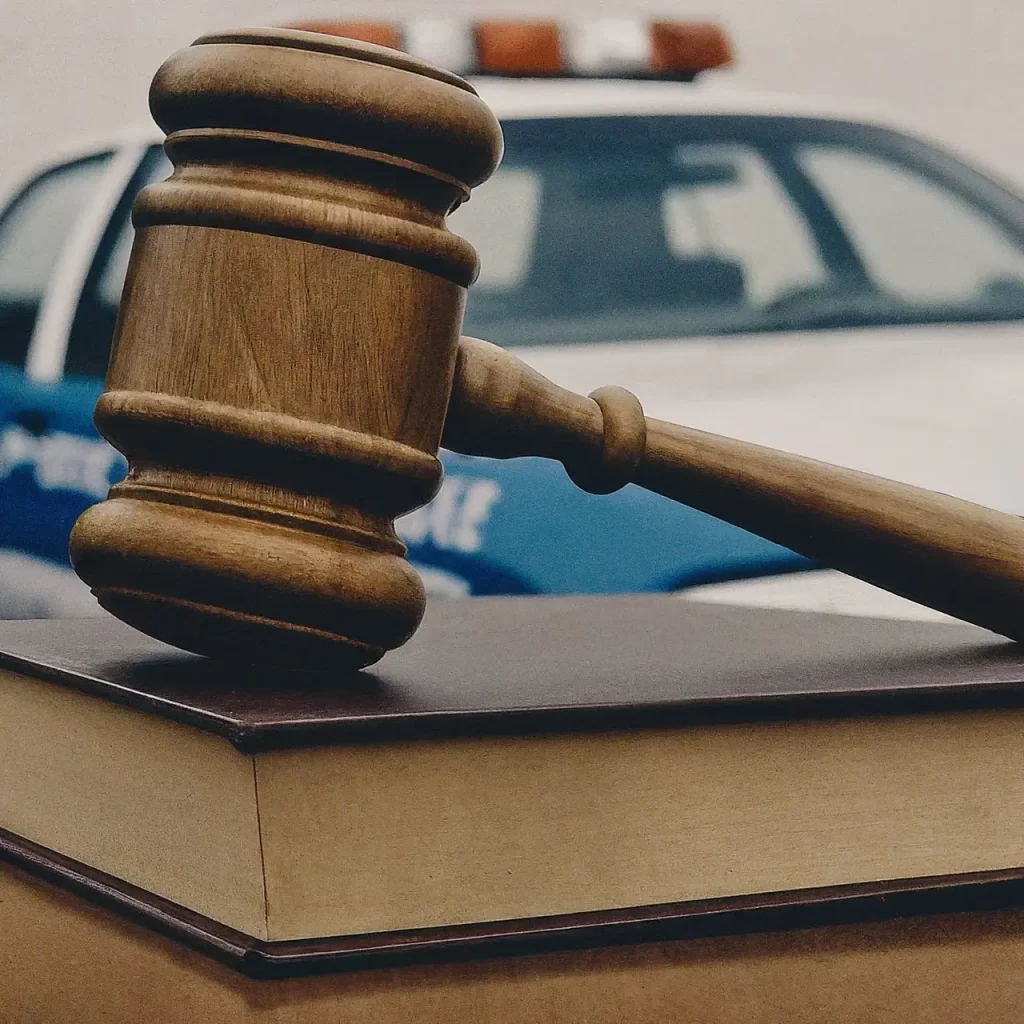Navigating the complexities of NJ DUI laws can be as intricate and daunting as traversing the Jersey Shore’s winding roads at night. This guide sheds light on the vital steps and legal nuances you ought to know following a DUI arrest in New Jersey, aiming to equip you with the necessary knowledge to steer through this challenging process.
An Overview of NJ DUI Laws
In New Jersey, driving under the influence (DUI) is a violation that carries serious repercussions, underscoring the state’s strict stance against impaired driving. NJ DUI laws differentiate not by the traditional ‘DUI’ versus ‘DWI’ terminology but focus meticulously on blood alcohol concentration (BAC) levels as the primary determinant for legal intoxication. With thresholds set at 0.08% for drivers aged 21 and over, and even stricter limits for commercial drivers and those under the legal drinking age, understanding these distinctions is paramount for any driver within the state’s boundaries.
Moreover, NJ’s approach to enforcing these laws is as aggressive as its penalties are severe. Utilizing a combination of roadblocks, sobriety checkpoints, and keen observation by law enforcement, New Jersey ensures that its roads are patrolled with the intent to deter and detect DUI offenses. This rigorous enforcement is backed by an intricate legal framework designed to prosecute and penalize offenders effectively, highlighting the importance for residents and visitors alike to remain cognizant of their consumption and its potential legal implications.
Consequences of a DUI Arrest in New Jersey
Facing a DUI charge in New Jersey can lead to a maze of consequences that affect not only one’s immediate freedom but also their long-term privileges and financial stability. Depending upon the severity of the offense and any prior convictions, penalties can range from fines, suspension of driver’s license, and mandatory participation in alcohol education programs, to installation of ignition interlock devices, community service, and even imprisonment. The escalation of these penalties with subsequent offenses underscores the state’s commitment to curbing DUI-related incidents.
In addition to the formal penalties, a DUI arrest carries with it a weight of indirect consequences that can ripple through various aspects of an individual’s life. The impact on auto insurance premiums alone can be steep, with New Jersey drivers facing significant increases in rates or the possibility of losing coverage altogether. Moreover, employment opportunities, particularly those involving driving responsibilities, may become limited. The social stigma and personal ramifications of a DUI record can further complicate personal and professional relationships.
The DUI Arrest Process: What to Expect
The moment law enforcement signals for you to pull over on suspicion of DUI marks the beginning of a critical sequence of events. From the initial roadside interaction, where officers assess your sobriety through field sobriety tests and preliminary breath testing, to the possibility of arrest and subsequent legal proceedings, each step carries significant implications. It’s essential to be aware that you have rights, including the right to remain silent and the right to legal representation, which should be exercised judiciously to protect your interests.
Understanding Blood Alcohol Content (BAC) Limits in NJ
Knowing the legal BAC limits in New Jersey is crucial for any driver. For most drivers, a BAC of 0.08% or higher is grounds for a DUI charge. However, drivers under 21 aren’t allowed any measurable alcohol in their system, reflecting a zero-tolerance policy. Commercial drivers face stricter standards with a limit of 0.04%. These limits are not arbitrary but are based on substantial evidence linking specific BAC levels with impaired driving ability, emphasizing the importance for all drivers to monitor their consumption and assess their capability to drive.
Legal Rights and Representation for DUI Defendants
Upon being charged with a DUI in New Jersey, securing competent legal representation is not just advisable; it’s a critical step in navigating the complexities of the state’s legal system. A qualified DUI attorney can provide invaluable guidance on the intricacies of DUI law, evaluation of the prosecution’s evidence, and development of a defense strategy. Additionally, understanding one’s rights, including the right to challenge the legality of a traffic stop, the accuracy of BAC testing procedures, and the credibility of witness testimony, is crucial in securing a favorable outcome.
Tips for Avoiding DUI Charges in New Jersey
The most foolproof strategy to avoid DUI charges in New Jersey is, unquestionably, to refrain from driving after consuming alcohol or any substance that impairs one’s ability to drive. Opting for alternative transportation, utilizing ride-share services, or assigning a designated driver can drastically reduce the risk of a DUI arrest. Understanding that even small amounts of alcohol can affect one’s driving ability, and adjusting plans accordingly, is key to ensuring both personal safety and compliance with state laws.
Navigating Forward
The journey through understanding and dealing with NJ DUI laws might seem long and treacherous, much like a night-time drive on the Garden State Parkway. However, with the right knowledge, legal assistance, and a commitment to making informed decisions, navigating the aftermath of a DUI arrest can lead to a future where such mistakes are but distant memories. Remember, knowledge of NJ DUI laws not only serves as your shield but also guides you back onto the right path.


